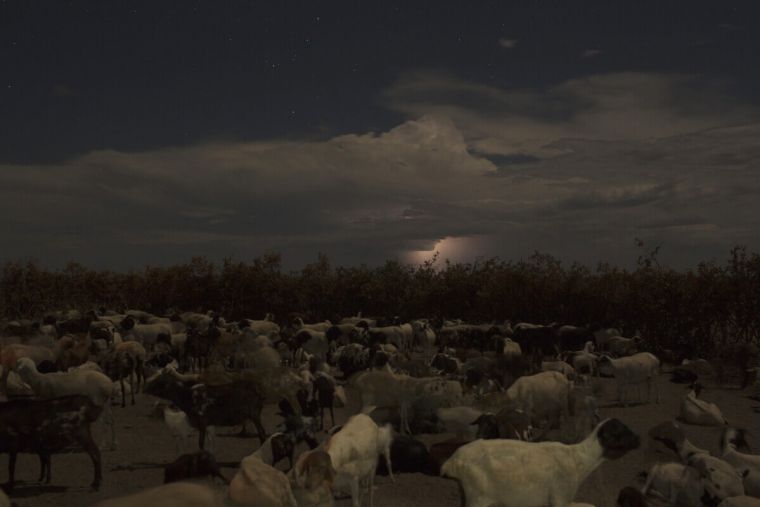A crisis is developing in Ethiopia and we have a chance to stop it

A humanitarian crisis has been developing in Ethiopia since October 2015, which has so far left 10.2 million people facing food shortages. Aid agencies and the nation's government have come up with a plan, but they have only managed to get 5 per cent of the funding needed to implement it. Ethiopia is starving, and the world doesn't seem to be paying attention.
Ethiopia was already suffering from a drought when the strongest El Niño in decades struck, limiting the rainfall that usually comes between October and November.
El Niño is a weather system that typically increases rainfall in California and southern US states and causes drought in other areas, including eastern and southern Africa. In Ethiopia, the lack of rain led to a failed harvest, destroying the agriculture on which 80 per cent of the population rely.
"Severe drought in some regions, exacerbated by the strongest El Niño in decades, caused successive harvest failures and widespread livestock deaths," Stéphane Dujarric, the spokesperson for the UN secretary-general, recently told reporters.
According to the World Food Programme, humanitarian needs in Ethiopia have tripled since the beginning of 2015, "yet so far, less than 5 per cent of the resources required for the first six months of the year are available," Dujarric added.
International development charity Christian Aid said farmers have been unable to produce harvest over two consecutive planting seasons and are now running low on fodder for cattle.
"We have seen hundreds and thousands of livestock die in rural and pastoralist areas," Christian Aid's head of humanitarian programmes in Africa, Maurice Onyango, said in a statement.
"It is estimated that nearly 250 of 700 'woredas' [districts] here are now extremely vulnerable and at serious risk of loss of food, water, health, livestock and assets... Meteorological forecasts indicate that the El Niño effect will continue until the middle of this year, so it is imperative that we act now."
The severity of the food shortage is devastating communities, forcing them to slaughter the oxen needed for the next season and eating the seeds they had saved for planting.
There is real fear that this crisis will have both a catastrophic human cost in the short term, and a longer term negative impact on development, reversing the progress Ethiopia has made in recent years.
The crisis brings back memories of the country's 1983-85 famine, which left an estimated 400,000 people dead.
It's not inevitable that history repeats itself, however, Ethiopia's government has collaborated with the United Nations and other aid agencies to develop a comprehensive document that lays out a plan to tackle the situation. The problem is, without the necessary funds – $1.4 billion in total – the scheme can't be implemented, and Ethiopia faces a downwards spiral.
The reality is that this drought is just one crisis among many in the current international climate. The media is distracted with reports of the escalating situation in Syria and the subsequent refugee crisis. It's not that people don't care, but it's posible to argue that the malnutrition of 10.2 million Ethiopians has been sidelined.
The worry is: "How bad does it need to get before the government donors take a real and active interest [in Ethiopia]?" Tearfund's deputy head for East and Southern Africa, Andy Morgan, told Christian Today.
Challiss McDonough, spokeswoman for the World Food Program, said: "Humanitarian needs globally are so enormous right now that donors are struggling to do anything near what's needed. You've got layered global humanitarian crises.
"It's hard for the donors to keep up."
Media coverage is often reactive to crises, because the public "is worse at listening to good news stories", Oenone Chadburn, Tearfund's head of humanitarian support, added.
If sufficient action is taken, a crisis can be averted. Ethiopia would not be left untouched, but it could avoid a repeat of the 1980s catastrophe. It has a stable government which has developed a realistic plan for a well co-ordinated response to the drought.
But the international community must act proactively rather than reactively, giving money to fund the government's plan, and this may prove problematic. "International donor choices are a political field," Chadburn said. "It is not just about making the intelligent choice as to where money goes."
Research by bilateral agencies has previously concluded that multi-year, early funding is the most cost-effective means of giving aid, and yet they are choosing to wait for sufficient media attention to respond to crises, she added.
Governments are reluctant to act proactively, always looking for more evidence that what is predicted will actually happen. They are "bad at recognising and actually acting on these early warning signs," Chadburn said.
We have a practical, proactive solution to the need in Ethiopia, but the global situation and the political nature of government giving is delaying the implementation, at the potential cost of thousands of lives.











